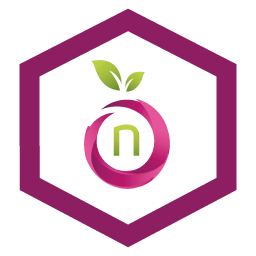Brand Naming with Real Word Names
Although many companies use acronyms, portmanteau constructions, or other “artificial” names, there is a remarkably simple method of naming a new business – one that several of the world’s largest companies have used, too.
Simply Take a Real Word as Company Name That is Already in the Dictionary
Who would be that bold and brazen? Well, lots of major international companies, from Amazon, Apple, and Twitter through to Orange and Virgin.
There's a lot to be said for this method. First off, you’re guaranteed that almost everyone who speaks the language from which the name is taken can pronounce it: find me an English-speaker who can’t say “apple”, and I’ll find you the one who can’t say “pear”. Admittedly, this doesn’t always work if, say, we’re talking about words which aren’t known to the whole language community: Adobe, for example, is a case in point. It was named for a river but, unlike the mighty River Amazon, the Adobe Creek is a teensy-weensy stream running through a town somewhere in the back-and-beyond of America, so not everyone knows whether to stress the final E or not.
Orange is not Orange Everywhere
By the same token, words that are language-specific are not always globally useful. The Amazon, to take the example once again, is known worldwide and has a relatively similar proper name in almost all languages; the word orange, meanwhile, on which the telecommunications company was named, may have similar cognates in German or French (which mean that, when bought by France Télécom, it didn’t need a name change), but in Spain, for example, the word for the fruit is quite different: naranja. Meanwhile, some languages don’t even really have a separate word for orange: Swedish uses the word appelsin – or “Siamese apple” – for the fruit and has a wealth of words for the color, of which orange is one of the more difficult to pronounce.

Then again, as long as names can be more or less well pronounced in foreign countries, the fact that the word is from another language can also guarantee it uniqueness and a certain cultural cachet: “Apple”, for example, can be said by speakers of almost any language, but is only a word in English. “Carrefour”, meanwhile, means crossroads in French, and although the positive feel to the word (travel, exchange, and opportunity) may be lost in other languages, the name works well internationally, partly because it sounds French and everyone trusts the French with food.
The Benefits of Being a Virgin
For the home market, though, the second major advantage to taking a name from the dictionary or the Atlas (e.g., country and city names) is that it automatically carries connotations and meaning: if somebody in England hasn’t heard of the food delivery service Ocado, for example, the word in and of itself will tell them neither what the company does nor what it is trying to say about itself. The British conglomerate Virgin, however – despite being involved in so many industries that no-one knows what it does anymore – always sounds fresh, young, and slightly risqué.
While Virgin courts controversy with a name so clearly linked to sex, the word in and of itself is not offensive, and any raised eyebrows are likely to help the name stick and raise brand awareness. Nevertheless, this can be a double-edged sword: names which have unwanted connotations can be dangerous, and so if you’re taking a word from a dictionary, it’s always a good idea to think through all of its meanings and see how they match up to the product or service: Orange wouldn’t be well advised to start a skin-care range, for example…
Vitamines for Brand Names
Indeed, companies with fruit names tend to be clustered in the technology sector: Apple, Orange, Raspberry Pi. There are two reasons for this, the first being that something as dry and inorganic as computing and telephony is just screaming out for a name that is a little more tangible (and that helps branding staff come up with a logo). Secondly – and this is the last major point about naming with proper nouns – fruit names have nothing to do with technology, so they are easy to patent in that market. After all, no judge would see trademark infringement if a tech company called itself “Computers Inc.” and other companies kept on offering ‘computers’: that product is simply what the word describes and always has. But calling a computer company “Grapefruit” means that if a competitor starts selling computers under that name, it’s a concrete case of trademark infringement.
Thinking about it, there’s so much you can do with tech and fruit… We’re just waiting for curvy Banana Pads and sweet red earplugs called Strawberry Headphones trademarks pending. A tip at the end: with more specific words you have more chances of trademark protection, so better take a rare form of the goji berry than a fruit that everyone knows. By the way, in the Toolbox, there are great name generators that eject random words on different topics.
What are crazy "real" words used as company or brand names you have seen?















